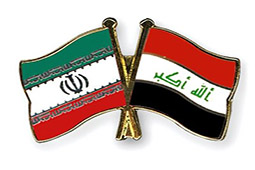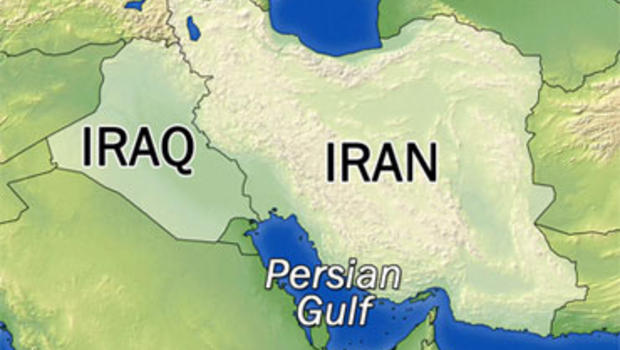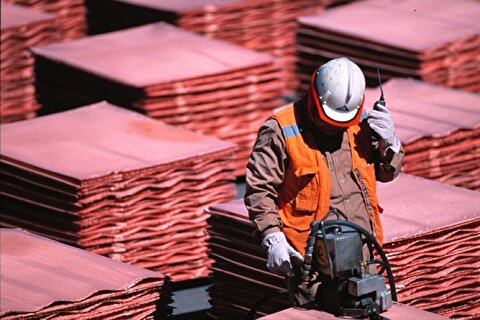
Iraq after Deeper Economic Ties with Iran


Mohammad Hashim al-Ani, referred to the upcoming visit by Iran’s Minister of Industry, Mine and Trade Reza Rahmani to his country, voiced his eagerness to talk discuss development of bilateral relations in the economic, investment and trade fields.
In today’s meeting held in Baghdad, the Iraqi minister expressed hope that the two neighbors would boost their trades and economic relations.
Referring to the US’ unilateral sanctions on Iran, the Iraqi official reiterated his respective government’s support to the Islamic Republic, saying Iraq will not abandon Iran under pressure.
Masjedi, for his part, expressed gratitude toward Iraq for making every effort to deepen relations with Tehran, saying, the Iranian private sector is ready to broaden the scope of its activities and cooperation with Iraqi partners in different economic sectors.
Earlier in mid-November, Advisor to the Iranian Parliament Speaker Hossein Amir Abdollahian hailed efforts to reconstruct the Iran-Iraq relations after the fall of former Iraqi dictator Saddam Hussein, saying that the Islamic Republic managed the developments in the relations between Tehran and Baghdad, turning Iraq from an actual enemy to a strategic ally.
The former deputy foreign minister for Arab and African affairs added that many attempts have been made to disrupt strong relations between Iran and Iraq, which were manifested during Arbaeen procession, when Iraqi people warmly welcomed Iranians.
Referring to the visit of Iraq's President Barham Salih and his accompanying entourage to Iran, Amir-Abdollahian said "President Salih has a long-standing friendship with Iran and a great understanding of the nature of ties between the two countries; he has also been among the people who have always been successful in developing and consolidating relations between the two countries since the fall of Saddam Hussein."
The most important message of the Iraqi President Barham Salih's vsit to Iran was that Iraqi government and people appreciate the support of the Islamic Republic of Iran in years, he noted.
Touching upon the US war in Iraq, he said "Americans arrived in Iraq in 2003 with long-term plans, aiming to bring more than 170,000 military troops to the country and use vast energy and oil resources."
"The Americans had come to stay in Iraq, not to leave the country, but the position of the Islamic Republic of Iran and our advice to Iraqi friends was to maintain the sweet taste of independence and free themselves from the tyrany of Americans," he added.
Iran and Iraq enjoy very close ties in the post-Saddam era and early in September, Advisor to the Iranian Parliament Speaker Hossein Amir Abdollahian underlined that Tehran and Baghdad enjoy strategic relations, blaming foreign hands for the recent unrest and attack on Iran's consulate in Basra.
“There are clear traces of the complicity of foreign agents of the region’s warmongers in the incident of arson attack on the consulate of the Islamic Republic of Iran in Basra,” Amir Abdollahian wrote on his twitter page.
In a related front, earlier in October, President Salih voiced his country's willingness to broaden bilateral relations with Iran in different fields, and said it is in Baghdad's best interests to have friendly and stable ties with Iran.
"Iran is a neighboring country and our interest lies in having good and stable relations with Iran,” Barham Salih told reporters during a visit to Kuwait.
The Iraqi president pointed to age-old relations between Baghdad and Tehran, and said, "There are vast areas that the two countries can increase their cooperation."
Iran is currently Iraq's top trade partner, with an annual turnover standing at about $12 billion.
Foodstuff, livestock, construction materials and plastic products constitute the bulk of Iran’s exports to Iraq where Iranian vehicles and food data-x-items are a ubiquitous sight.
Iran and Iraq have also been exchanging oil through a swap deal under which crude from the Kirkuk field in northern Iraq is shipped by truck to Iran, which uses it in its refineries and delivers the same amount of oil to Iraq’s southern ports.


Newmont nets $100M payment related Akyem mine sale

First Quantum scores $1B streaming deal with Royal Gold

Caterpillar sees US tariff hit of up to $1.5 billion this year

Gold price rebounds nearly 2% on US payrolls data

Copper price collapses by 20% as US excludes refined metal from tariffs

St Augustine PFS confirms ‘world-class’ potential of Kingking project with $4.2B value

B2Gold gets Mali nod to start underground mining at Fekola

Goldman told clients to go long copper a day before price plunge

Copper price posts second weekly drop after Trump’s tariff surprise

Codelco seeks restart at Chilean copper mine after collapse

US slaps tariffs on 1-kg, 100-oz gold bars: Financial Times

BHP, Vale offer $1.4 billion settlement in UK lawsuit over Brazil dam disaster, FT reports

NextSource soars on Mitsubishi Chemical offtake deal

Copper price slips as unwinding of tariff trade boosts LME stockpiles

SAIL Bhilai Steel relies on Danieli proprietary technology to expand plate mill portfolio to higher steel grades

Alba Discloses its Financial Results for the Second Quarter and H1 of 2025

Australia weighs price floor for critical minerals, boosting rare earth miners

Australia pledges $87M to rescue Trafigura’s Nyrstar smelters in critical minerals push

Fresnillo lifts gold forecast on strong first-half surge

US slaps tariffs on 1-kg, 100-oz gold bars: Financial Times

BHP, Vale offer $1.4 billion settlement in UK lawsuit over Brazil dam disaster, FT reports

NextSource soars on Mitsubishi Chemical offtake deal

Copper price slips as unwinding of tariff trade boosts LME stockpiles

SAIL Bhilai Steel relies on Danieli proprietary technology to expand plate mill portfolio to higher steel grades

Alba Discloses its Financial Results for the Second Quarter and H1 of 2025

Australia weighs price floor for critical minerals, boosting rare earth miners

Australia pledges $87M to rescue Trafigura’s Nyrstar smelters in critical minerals push

Fresnillo lifts gold forecast on strong first-half surge














